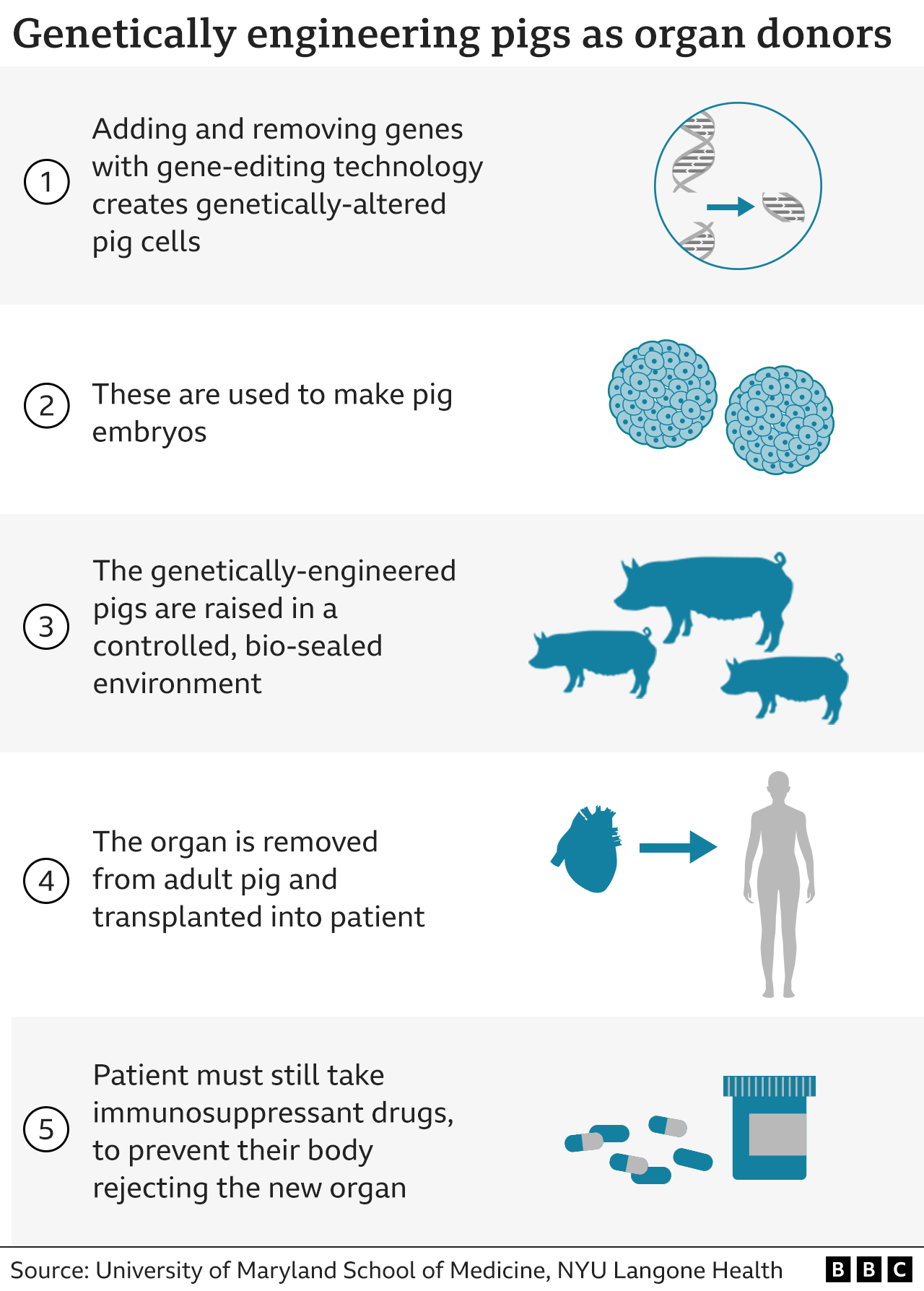During one of our lectures, our professor brought up the topic of ‘humanised pigs’ where human stem cells are injected into pig embryos to form human organs, and this piqued my interest.
The process of transplanting cells from one species to another is known as xenotransplantation, and has the potential to solve the shortage of organs for transplants. According to the NHS, currently 6963 patients are waiting for an organ transplant and 3396 patients have received one. Unfortunately, my uncle was not one of the lucky ones, and he passed away. Because of him, I felt compelled to conduct further research in the field of xenotransplantation. Could a xenotransplantation have potentially saved my uncle’s life? And if so, would he have agreed to it if given the chance?
The idea of genetically modifying animals to serve as organ donors for humans is both fascinating and controversial, and therefore I had to explore it further.
The history of xenotransplantation
How is xenotransplantation performed?

Pigs are ideal candidates because of their size, ease of breeding, and anatomical and physiological similarities to humans.
Pig cells are genetically modified using gene knockouts or gene-editing technology like CRISPR-Cas9 in order to reduce the risk of rejection by the human immune system.
This is done by removing pig genes that will trigger immune responses when transplanted in humans and by introducing human genes to make the pig organs more compatible.
Once the genetically-engineered pigs are grown, the desired organ is removed and transplanted into the patient.
Immunosuppressive drugs are administered and the patient is monitored for the rest of their lives.
What are the ethical issues and concerns in xenotransplantation?
Is the breeding of animals for the purpose of using them as a supply of organs ethically acceptable? Is it more ethically justifiable to use animals for cosmetic and drug research (e.g. development of vaccines and cancer treatments)?
There is much debate surrounding the use of animal organs in humans, raising concerns about their exploitation:
- It violates animal welfare; it is unethical and cruel as they are capable of suffering and feeling pain
- Animals can not give consent; genetically modifying pigs to harvest their organs violates animal rights and we are using them for our own benefit without their explicit consent.
Some may argue about the possibility of organ rejection and the risk of cross-species infection, but if you ask me technology advances rapidly and by using CRISPR-Cas9 to genetically modify pigs, antigenicity can be reduced and viruses like PERVs- porcine endogenous retrovirus, can be inactivated, lowering the risk of transmission.

Although, it is important not to neglect other possible alternatives in addressing organ shortages like tissue engineering, lab grown organs, 3D bioprinting and stem cell research.
The way I see it, while there are significant ethical considerations, the potential benefits of using animals for human transplantations can’t be ignored. If this could possibly mean saving my uncle’s life, how could I not support it? What if you had a close relative who needed an organ transplant, would that change your perspective on xenotransplantation?
Taking into account everything I have learnt so far from my research, I believe that xenotransplantation is moving closer to becoming a viable and life- saving option for patients in need. As it progresses, it is essential to maintain a balance between the scientific advances and ethical considerations to ensure the welfare of both humans and animals. Whether we like it or not this is a medical breakthrough!